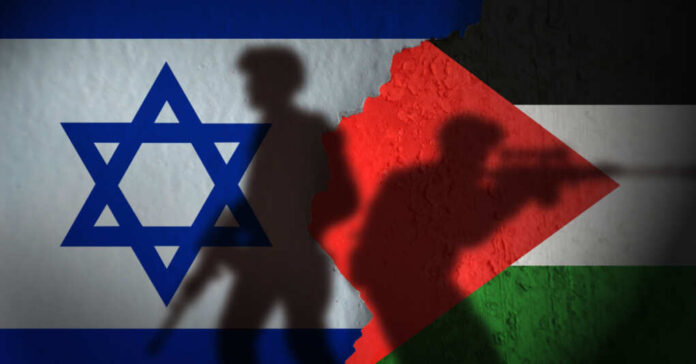
On October 7, Hamas militants launched an assault on Israel from the blockaded Gaza Strip into nearby Israeli towns. This incident occurred during a major Jewish holiday, resulting in dozens of casualties and abductions. The attack was devastating, with Israeli sources indicating over 250 people killed and 1,500 wounded, making it the deadliest incident in Israel in decades. In Gaza, at least 232 people were killed and 1,700 wounded in Israeli strikes, according to the Palestinian Health Ministry.
Hamas militants carried out a wide-ranging assault, infiltrating as many as 22 locations outside the Gaza Strip, even reaching communities up to 15 miles from the Gaza border. Hostage situations developed in two towns, and militants occupied a police station in a third town, leading to protracted standoffs. Additionally, Hamas fighters took an unknown number of captive civilians and soldiers into Gaza.
Hamas is a Palestinian organization with a significant presence in the Gaza Strip. It was founded in 1987 during the First Intifada, which was a Palestinian uprising against Israeli rule. Hamas is both a political party and a resistance movement.
Politically, Hamas engages in governance and policymaking, competing with other Palestinian factions, including the Palestinian Authority. Hamas also provides an array of social services to Palestinians in the Gaza Strip. These services encompass healthcare, education, and welfare programs, further deepening its connection with the local population.
Simultaneously, Hamas maintains a military wing that conducts armed resistance against Israel. This includes launching rockets into Israeli territory and engaging in guerrilla warfare. These actions have frequently led to conflicts and hostilities between Hamas and Israel. Hamas’s stated objective is the liberation of historic Palestine and the establishment of an Islamic state. Despite its designation as a terrorist organization by various countries and international bodies, Hamas is recognized as a legitimate resistance movement by the Arab world.
The recent brutal assault is part of the ongoing Israel-Palestine conflict, which has persisted for over a century, with the heart of the dispute lying in competing claims to the same territory, notably Jerusalem. This city holds profound religious significance for Jews, Christians, and Muslims, leading to aspirations from both Israelis and Palestinians to have it as their capital.
The West Bank and Gaza Strip are also areas of dispute, with Israel controlling the former and the latter under Palestinian self-governance with significant restrictions. Settlements in the West Bank, considered illegal under international law, further complicate the territorial issue.
The ongoing conflict has seen several wars and violent clashes. In 1948, the Arab-Israeli War (or War of Independence) resulted in the creation of the state of Israel and the displacement of hundreds of thousands of Palestinian Arabs. The Six-Day War in 1967 led to Israel’s occupation of the West Bank, Gaza Strip, and East Jerusalem. In 1973, the October War, led by Egypt and Syria, saw a surprise attack on Israel during the Jewish holiday of Yom Kippur.
The conflict remains unresolved and continues to be marked by sporadic outbreaks of violence, such as wars in Gaza (2008-2009, 2012, 2014) and clashes in Jerusalem, like those seen in recent years. Key issues that remain unresolved include the status of Jerusalem, borders of a potential Palestinian state, the right of return for Palestinian refugees, and the establishment of a sovereign and viable Palestinian state alongside Israel.
International involvement has been ongoing, with the United States traditionally playing a central role as a mediator, various international organizations contributing to peace efforts, and regional players engaging in resolution-seeking activities. The Oslo Accords in the 1990s and the Camp David Summit in 2000 aimed to reach peace agreements but encountered challenges, leading to the outbreak of the Second Intifada.
Notably, in 2020, then-President Donald Trump brokered the Abraham Accords, marking a historic milestone through Israel’s establishment of diplomatic relations with Arab countries, the first of its kind since the Israel-Jordan peace treaty in 1994. These accords involved the recognition of Israel’s sovereignty and the establishment of full diplomatic relations with the United Arab Emirates and Bahrain.
The recent attack on Israel is a fresh chapter in the ongoing dispute, met with a quick reaction from Israeli Prime Minister Benjamin Netanyahu. Unlike Hamas’ surprise attack, Israel warned civilians on the Gaza Strip prior to each planned response, but the losses on both sides so far have been devastating. It’s a sad reality that highlights the region’s instability, where everyday people are the ones most affected by the never-ending violence.















